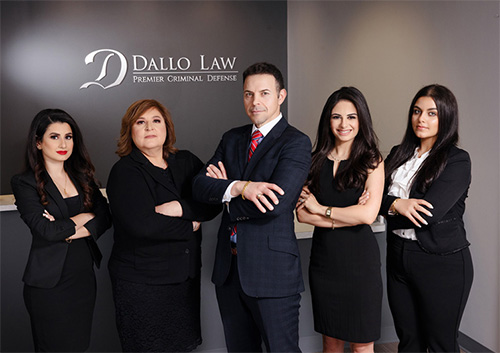Voluntary manslaughter is a mid-level “killing offense.” An individual can be charged with voluntary manslaughter if they allegedly engaged in conduct that caused the death of another. The elements of voluntary manslaughter most closely resemble the elements of involuntary manslaughter.
The primary difference between these two offenses is that voluntary manslaughter involves an intent element. Someone could be lawfully convicted of involuntary manslaughter even if they didn’t intend to harm anyone. In contrast, anyone facing voluntary manslaughter charges must be shown to have intended to harm or understood that harm would likely result from their conduct.
Michigan Voluntary Manslaughter Attorney
In the state of Michigan, voluntary manslaughter is one of the most serious criminal charges you can receive, and it can result in grievous consequences if you are convicted. Because of how serious murder offenses can be and the potential consequences they carry, it’s imperative that you get in touch with Dallo Law, P.C. if you have been charged with voluntary manslaughter.
Our legal team is ready to investigate your case and build a strong defense to help protect your rights. Call Dallo Law, P.C. at (248) 283-7000 now to arrange a consultation today and speak with attorney J. Dallo about your legal options. Dallo Law, P.C. is located in Bloomfield Hills, but we accept clients throughout Oakland County and Macomb County, Michigan.
Information Center
- Elements of Voluntary Manslaughter Offense
- Voluntary Manslaughter As A Lesser Included Offense Of Murder
- Penalties for Voluntary Manslaughter in Michigan
- Statute Of Limitations
- Defenses for Voluntary Manslaughter in Michigan
- Additional Resources
Elements of Voluntary Manslaughter Offense
Prosecutors must successfully prove each element of an offense to secure a conviction. In most involuntary manslaughter cases, the following three elements must be proven beyond a reasonable doubt:
- The defendant caused the death of the victim; that is, the victim died due to the defendant’s actions or inactions
- Intent: The defendant must have had one of the following states of mind at the time that they caused harm to the victim:
- The defendant intended to kill the victim
- The defendant intended to cause the victim great bodily harm
- The defendant knowingly created a very high risk that death or great bodily harm would be the likely consequence of their actions
- The defendant caused the victim’s death without lawful excuse or justification
Voluntary Manslaughter As A Lesser Included Offense Of Murder
The elements of a voluntary manslaughter charge shift, to a certain extent, when that offense is being charged as a reduction of a murder charge. The defendant could have been justifiably charged with murder, but their charges may be reduced to voluntary manslaughter because they “acted out of passion or anger brought about by adequate cause and before the defendant had a reasonable time to calm down.”
To be convicted of a voluntary manslaughter charge as opposed to a murder charge, it must be proven beyond a reasonable doubt that:
- When the defendant acted, they must have been provoked to “emotional excitement” so that a reasonable person would have acted rashly or on impulse. The defendant could not have had time to “think twice” before acting out of passion in this manner.
- The victim’s death must have resulted from actions born of this emotional excitement. Again, the defendant cannot have had time to calm themselves and return to reason before committing the actions that killed the victim.
Penalties for Voluntary Manslaughter in Michigan
Although aggravating factors can potentially increase the sentencing terms associated with any killing charge, Michigan sets a maximum penalty for voluntary manslaughter convictions that aren’t tied to any aggravating factors. If an individual is convicted of voluntary manslaughter, they face a maximum term of incarceration of no more than 15 years. They may also have to pay a fine of no more than $7,500.
Because this penalty structure involves maximum sentencing terms, not mandatory minimums, the courts are granted discretion to impose far lower sentencing terms if they believe that justice will be better served.
Statute Of Limitations
A statute of limitations restricts the time in which prosecutors may pursue criminal charges against a suspect in a case. If charges aren’t filed within this period, these professionals will no longer remain empowered to file them.
In Michigan, voluntary manslaughter charges may be filed for 10 years after the date upon which a victim of a killing dies. A notable exception to this rule comes into play if the identity of a killing victim is initially unknown. So long as the death of the individual in question is reported within a year of their passing, the statute of limitations won’t begin to run until their identity is verified. The statute of limitations is still 10 years, but the timeframe for prosecutors to file charges against a suspect doesn’t begin until the victim’s identity has been confirmed.
Defenses for Voluntary Manslaughter in Michigan
The most common defense strategy in voluntary manslaughter cases involves placing doubt in the minds of jury members that the prosecutor has met their burden of proof regarding at least one of the elements of the offense. If the prosecutor can’t convince the jury of each element beyond a reasonable doubt, they should not rightfully convict the defendant of this charge.
To create reasonable doubt, a criminal defense attorney may argue that the victim died due to causes unrelated to the defendant’s actions (element number one). They may also argue that the defendant lacked the requisite intent for the crime; that is, that they neither intended to kill or cause great bodily harm to the victim nor knowingly created a very high risk that death or great bodily harm would result from their actions (element number two). The key word in that last scenario is “knowingly,” as someone could have created such a risk but done so without appreciating the likely outcome of said risk.
Finally, a criminal defense attorney can argue that the defendant may have caused the victim’s death, but they shouldn’t be held accountable for the death because they had a “lawful excuse or justification” (element number three). Self-defense and defense of others are examples of lawful justifications for causing the death of another. So long as the legal criteria for one or both exceptions are met, they can serve as a legitimate defense to voluntary manslaughter charges.
Additional Resources
Court Livestreams | Michigan Courts – Visit the official website of the Michigan judicial branch to view livestreams and archival videos of cases heard by trial courts and courts of appeal.
Homicide | Michigan Model Criminal Jury Instructions – Visit the official website of the State’s court system to learn about the elements that must be proven in criminal cases involving the unlawful killing of another human being or the unborn.
Bloomfield Hills Voluntary Manslaughter Lawyer | Oakland County, MI
Because manslaughter is a violent felony crime that results in the loss of another human being’s life, Michigan prosecutors take it extremely seriously and seek to impose strict penalties. If you have been arrested for voluntary manslaughter in Michigan, do not tackle this legal challenge alone. It is important that you retain the legal representation of a skilled criminal defense attorney that can seek justice on your behalf.
Attorney Dallo and his legal team at Dallo Law, P.C. have years of experience in criminal defense and are here to help you through this difficult time in your life. Do not wait any longer to call (248) 283-7000 and schedule your first consultation.
Dallo Law, P.C. accepts clients throughout the greater Oakland County and Macomb County area including Pontiac, Troy, Waterford Township, Oakland Charter Township, Royal Oak, Clarkston, Southfield, and Bloomfield Hills.









